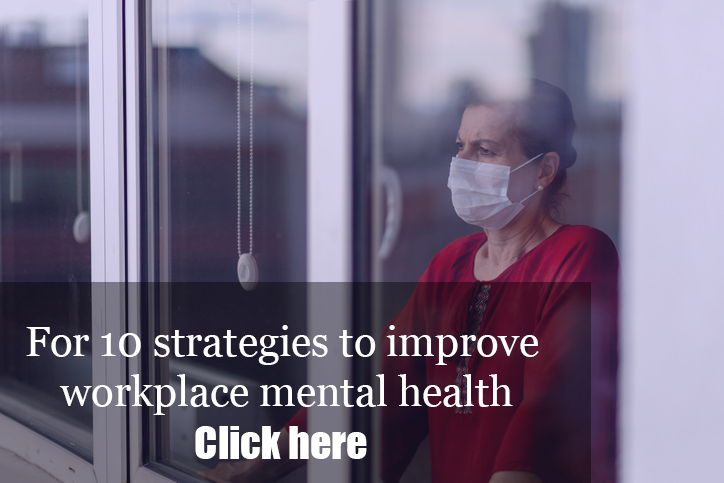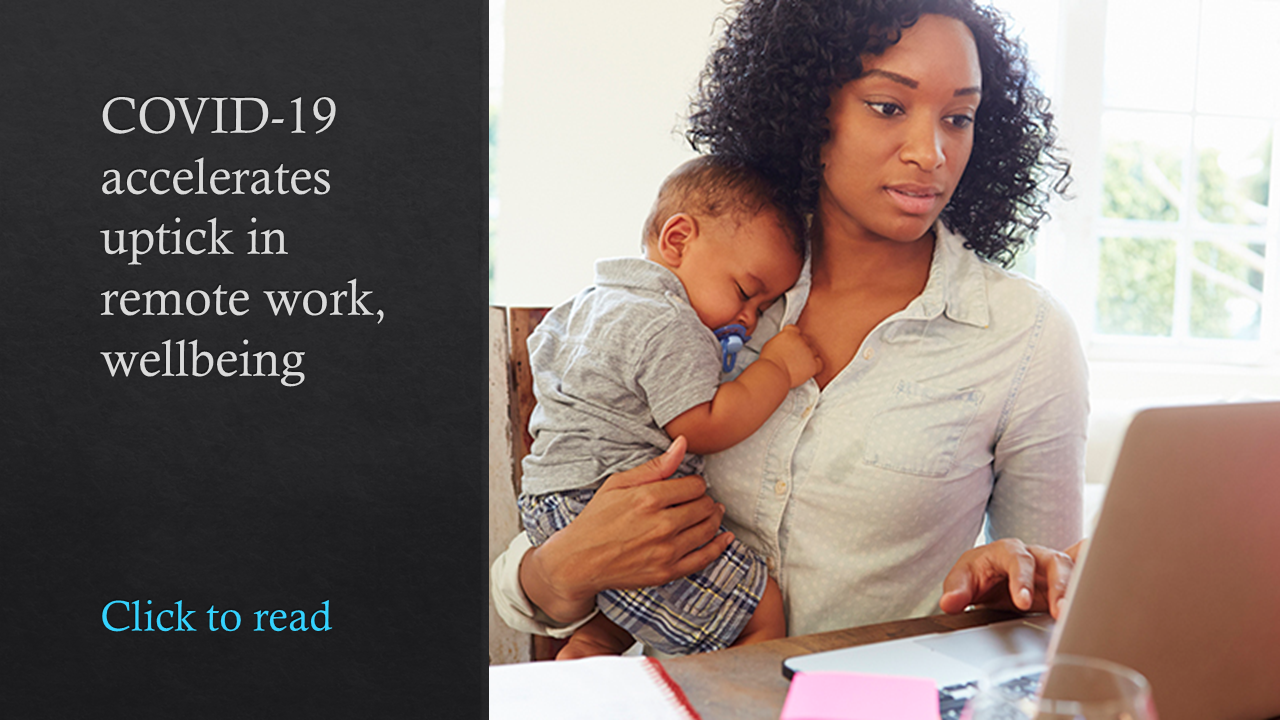Nearly a third of employees now describe themselves as depressed, new research reveals, the latest signal of a troubling mental health crisis.
A new survey of 5,000 employees from research firm Gartner finds that 29% describe themselves as depressed as a result of the COVID-19 pandemic.
 “The need for wellbeing support has skyrocketed since the pandemic struck, giving organizations a new mandate to offer more and better programs,” says Carolina Valencia, vice president in the Gartner HR practice. “Organizations, more than ever, must respond to all facets of the individual, from the physical to the emotional, and address some of the new stressors that have emerged over the past year.”
“The need for wellbeing support has skyrocketed since the pandemic struck, giving organizations a new mandate to offer more and better programs,” says Carolina Valencia, vice president in the Gartner HR practice. “Organizations, more than ever, must respond to all facets of the individual, from the physical to the emotional, and address some of the new stressors that have emerged over the past year.”
The survey comes on the heels of other troubling signs of a mental health crisis. Overall, the last year has seen soaring rates of stress, depression, anxiety and burnout, exacerbated by the COVID-19 pandemic and its associated effects. Total Brain’s mental health index, which has been tracking the state of mind of the U.S. workforce since February 2020, has found sharp increases in depression and anxiety over the past year. And data from Limeade found that employee burnout is soaring as a result of COVID-19. When the software company surveyed employees just months before the pandemic began, they found that 42% of workers were burned out. When they asked employees about burnout again, a few months into COVID-19, that number had shot up to 72%.
Additionally, employers already had a mental health epidemic on their hands even before the pandemic, experts say. “A mental health crisis existed long before COVID-19,” Total Brain CEO Louis Gagnon said recently. “Data prior to the pandemic revealed a stunning 70% of U.S. workers’ brain capacity is impaired to some degree by stress and high-risk of mental health conditions–a reminder that the pandemic only amplified an existing crisis that is still left to be addressed.”
REGISTER HRE’s (free and virtual) Health & Benefits Leadership Conference
Employers have largely taken “emergency measures” as a result to support struggling workers during the pandemic–like bolstering wellbeing programs, providing flexibility and adding mental health help, Gartner found, but the data found there is significant work to be done.
For instance, although half of the employees who reported their organization offers a mental wellbeing program participated in it in 2020, according to Gartner research, less than half of employees (46%) feel that their organization’s wellbeing programs are personalized. Further problematic is that only one-quarter of organizations report that they plan to maintain the programs introduced during the pandemic for the foreseeable future.
Valencia says that, especially during times of disruption, there are multiple ways in which organizations can provide emotional and mental support to their employees, including traditional support like employee assistance programs and mental health counselors to more progressive ideas like offering mental health days and establishing wellbeing champions.
Related: Software giant adds mental health day to ease COVID-related stress
“Wellbeing champions help to remove the stigma around emotional and mental health and ensure employees who need help are not afraid to ask for it,” she says. “[Another] alternative is to provide employees with tools, such as wellbeing apps, that allow employees to personalize the support that they need.”
Valencia also says that HR and company leaders should utilize managers more in their mental health journey. “Organizations need to equip managers correctly so they can support and empower those around them without overlooking their own health and safety,” she says. “This means making sure organizations are providing adequate training and support. After all, managers are critical for ensuring employees can access available resources more easily. Manager training should focus on helping them find the right balance between being empathetic and understanding, without trying to take the role of mental counselors, which they are not trained to do.”



